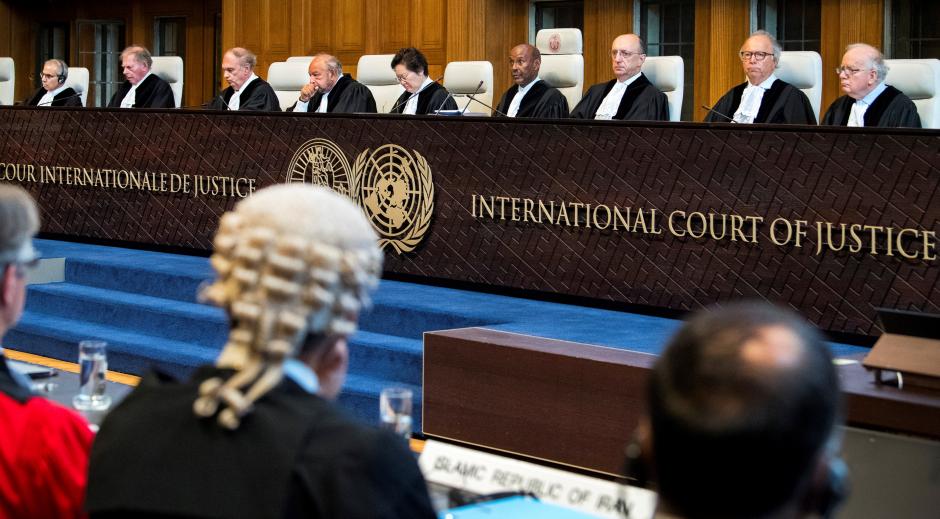US Sanctions Listing Could Harm Humanitarian Trade With Iran

EghtesadOnline: US sanctions intended to squeeze an Iranian voluntary force may have consequences for humanitarian efforts in the country because of its targeting of a bank, lawyers and analysts say.
They also could signal a hardline approach toward Iran as the US prepares to restore the final tranche of its sanctions lifted following the 2015 nuclear accord that target key economic engines, such as oil and petrochemicals.
US President Donald Trump said in May when exiting the nuclear deal that the sanctions would phase back in over a 180-day period.
The measures announced this week by the US Treasury Department target companies and financial institutions allegedly supporting the Basij, a part of the Islamic Revolution Guards Corps, according to Financial Tribune.
The restrictions also were meant to send a warning to companies and governments considering continued dealings with Iran after the restoration of sanctions, senior US administration officials told reporters, the Wall Street Journal's website reported on Friday.
But one of the institutions blacklisted this week, Iran's Parsian Bank, is seen as a key conduit for international humanitarian trade with Iran.
>Legal Exports
Observers suggested the sanctions could chill funding for otherwise legal exports to Iran, such as medicine and food.
"This will make it more difficult to get financing for humanitarian projects," said Adam M. Smith, a partner at law firm Gibson Dunn & Crutcher LLP, who previously served as a senior adviser to the director of the Treasury Department's sanctions office. "That makes me very nervous."
Unique to this case is the justification for the sanctions. The companies were not targeted for their own actions, according to the US Treasury Department's announcement.
The decision instead came as a result of an investment firm that allegedly profited from investments in Parsian and two other entities.
"There are eight degrees of derivation between Parsian Bank and the [intended sanctions target], the IRGC," said Erich Ferrari, founder of Ferrari & Associates PC, a law firm focused on representing targets of US sanctions.
The sanctions bar Americans from conducting transactions with those targeted. A spokesman for the US Treasury Department declined to comment beyond the press release announcing the sanctions.
Parsian Bank did not respond to an email seeking comment, according to the paper.
During the era of heightened sanctions on Iran, Parsian covered "a substantial volume of the humanitarian trade" in goods and services, and imports of food and medicine, the bank says on its website.
Parsian also says it has an established anti-money-laundering compliance program and that it follows national and international standards.
The company has held compliance training for its staff, as well as for other Iranian lenders, "in an effort to promote the proficiency of the personnel within the Iranian banking system", Alireza Alaei, the bank's manager for international operations, is quoted as saying on the bank's website.
The sanctions this week come ahead of the restoration of restrictions on the Iranian shipping sector, the oil sector and the central bank, scheduled for November 4.
>Violation of Court Order
Iran’s Foreign Minister Mohammed Javad Zarif condemned this week's sanctions on Twitter, saying they violate an international court order not to impede humanitarian trade.
"Utter disregard for rule of law & human rights of an entire people," he said, calling the US an "outlaw regime" with an "addiction to sanctions".
One of the likely intended audiences for the sanctions on Parsian Bank was the European signatories to the nuclear deal, according to a note issued by the Eurasia Group, a political risk consultancy firm.
The European Union considers Iran's access to humanitarian goods a priority and European officials likely are outraged by the step against the bank, the note said.
It could motivate European officials further to implement a planned special purpose vehicle to bypass US sanctions. The mechanism may be effective for the humanitarian transactions.
The International Court of Justice said in its recent ruling that while US sanctions "in principle" exempt food and medical supplies, "it has become difficult if not impossible for Iran, Iranian nationals and companies to engage in international financial transactions" to purchase such goods.
US Secretary of State Mike Pompeo has claimed that the United States has already taken steps to ensure that the sanctions do not impact humanitarian aid, regardless of the court's ruling.


